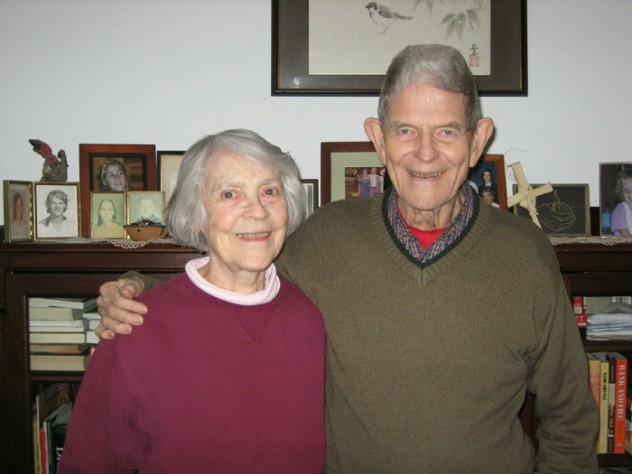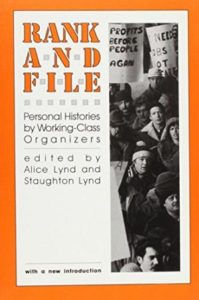From Alice Lynd’s work We Won’t Go (1968), to their most recent co-authored book Moral Injury and Nonviolent Resistance (2017), the Lynds have revolutionized the field of oral history and have done so while keeping their commitment to social justice at the center of their work. In the Saturday plenary at the 2017 annual meeting, the Lynds will reflect on the sources of inspiration that gave rise to their interest in oral history and address the evolution of their oral history practice over the past fifty years. They have used oral history as a tool in their social justice work with draft resisters, steelworkers in Gary, Indiana and Youngstown, Ohio, Palestinians in the West Bank, and, as lawyers, corresponded with and interviewed inmates on death row and in super maximum security prisons.
Alice and Staughton Lynd’s groundbreaking work Rank and File, published in 1973, inspired oral historians to turn towards documenting the lives of everyday people. Jesse Lemish coined the term “history from the bottom up,” and Staughton Lynd led workshops using oral history as a central tool in what he called “guerilla history.”
While the Lynds have been acknowledged for their work in moving the field towards interviewing everyday people, their theoretical contributions have largely gone unrecognized. In their early oral history work, the Lynds became conscious that interviewer and interviewee are “two experts” who bring different kinds of expert knowledge to the project of telling what happened and what it means. Their conceptualization of “accompaniment” predated Michael Frisch’s work on “shared authority” and Alessandro Portelli’s work on “research as an experiment in equality.”
This plenary acknowledges the lifework of the Lynds and their pivotal contributions to the field of oral history.

